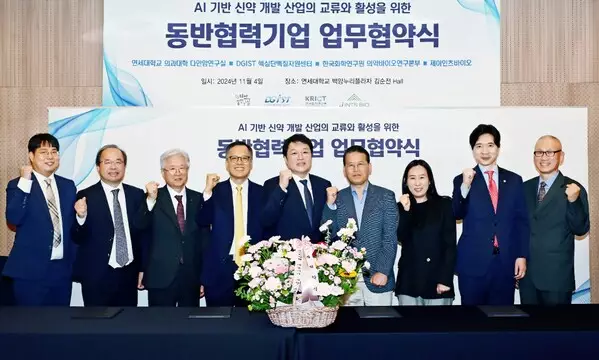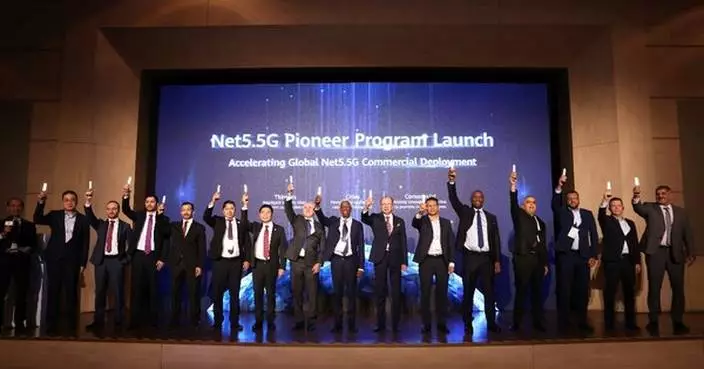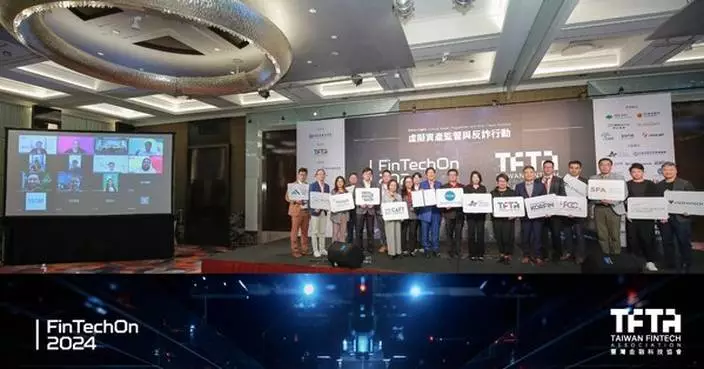The first to bring underwater robotic hull cleaning to Singapore at scale
China-Singapore connection covers more than half of international merchant vessel stops
SINGAPORE, Nov. 5, 2024 /PRNewswire/ -- Neptune Robotics, a pioneer in AI-powered robotic hull cleaning services, has expanded to Singapore becoming the first industry player capable of supporting shipowners and operators along China-Singapore shipping routes.
The deep tech company enters Singapore with a proprietary fleet of six underwater robots that can clean in extreme ocean environment with environment-friendly debris collection system. The move also makes Neptune Robotics the first company to bring robotic hull cleaning capabilities to Singapore at scale.
Since starting commercial operations in 2020, Neptune Robotics' cleaning services expanded rapidly to 60 ports in Asia and are endorsed by some of the world's largest liners, shipowners and operators. By adding Singapore, the company now provides service coverage for more than 55% of the international merchant vessels' stops. With a current fleet of six robots, the company aims to clean approximately 800 vessels over the next 12 months in Singapore.
"Many key clients have been asking for our services in this important market. Our presence in Singapore places us firmly along key international shipping routes, providing shipowners with assurance of standardized high quality vessel cleaning across the China-Singapore corridor." said Elizabeth Chan, Co-founder & CEO of Neptune Robotics.
Boosting underwater hull cleaning efficiency
Countering currents is extremely important for underwater hull cleaning. Neptune has raised the industry standard from countering 1 knot to 4 knots of underwater current using its proprietary robots - Magneto. This allows for 24-hour a day cleaning – no down time – when operating in anchorages, compared to the 4 hours a day of traditional cleaning by divers.
Biofouling – the collection of algae, seaweed, barnacles and other organisms on vessels – is a major problem for vessel operators globally and contributes to operation inefficiencies and increased fuel requirements. The company's technology ensures over 95% biofouling removal, improving vessel performance while reducing operational risks and environmental impact.
Reducing maritime carbon emissions
Maritime shipping is a major contributor to global emissions, emitting around one billion tons of carbon dioxide per year. A 2022 study co-authored by the International Maritime Organization found that even a thin biofouling layer on just half a ship's hull can increase ship emissions by as much as 30%. By removing the biofouling, Neptune Robotics' technology contributes to maritime decarbonization at scale in an economic manner.
Alongside alleviating potential environmental impact by reducing discharge from manual cleaning processes, Neptune Robotics' advantage over traditional hull cleaning also includes minimizing safety hazards and ensuring consistent and transparent cleaning quality.
"Our technology has been ranked first among robotic hull cleaning technology in countering strong ocean current, complete coverage of hull including above waterline cleaning and hull coating protection, and we are constantly improving to provide clients with the most efficient solutions" added Chan.
Neptune Robotics' leadership brings together a unique set of skills that have kept the company at the cutting edge of innovation. The move to Singapore is to accelerate this momentum and continue to push boundaries in the industry.
The company's Singapore team will be led by maritime veteran Johnson Teng as head of operations.
About Neptune Robotics
Neptune Robotics, a trailblazer in maritime technology, specializes in advanced robotic solutions for hull cleaning and algorithm solutions for biofouling management. Neptune Robotics operates in 60 ports in Asia and employs 120 people. Since its inception in 2020, Neptune's robots have helped the shipping industry avoid around 1 million tons of CO2 emissions. In April 2022 it raised US$17.25 million from Sequoia Capital, SOSV, and Matrix Partners. Neptune Robotics ranked first place with its groundbreaking robotic hull cleaning technology in StartUs Insights' 2024 report entitled "Worldwide 5 Top Robotics Startups Impacting The Maritime Industry".
** The press release content is from PR Newswire. Bastille Post is not involved in its creation. **

Neptune Robotics Adds Singapore to Asia Service Network as Demand for Multi-Port Vessel Cleaning Rises
- Yuhan Corporation CEO Wook Je Cho, National Assembly Member Seong Hoon Park, and KAIST Professor Joung Ho Kim join a pioneering collaboration in precision oncology.
SEOUL, South Korea, Nov. 5, 2024 /PRNewswire/ -- On November 4, 2024, J INTS BIO hosted a significant MOU signing ceremony at Baekyangnuri Plaza, Yonsei University, unveiling a groundbreaking AI-driven collaboration to revolutionize cancer treatment. This ambitious alliance unites leading institutions, including Yonsei University College of Medicine's DAAN Cancer Research Institute, Daegu Gyeongbuk Institute of Science and Technology (DGIST), Korea Research Institute of Chemical Technology (KRICT), and KAIST. The event featured a distinguished lineup, with Yuhan Corporation CEO Wook Je Cho, National Assembly Representative Seong Hoon Park, and KAIST's Professor Joung Ho Kim, a prominent member of the National AI Committee, highlighting the extensive support from both government and industry sectors.
Precision Medicine Redefined: AI Meets Multi-Omics
J INTS BIO is at the forefront of developing personalized lung cancer therapies through the integration of artificial intelligence and multi-omics technology. Multi-omics offers a comprehensive approach to disease biology by combining genomics, transcriptomics, metabolomics, and proteomics. Using AI and national supercomputing infrastructure, the project aims to enhance drug efficacy prediction and minimize toxicity, addressing the critical challenges that plague conventional oncology drug development.
Professor Byoung Chul Cho of Severance Hospital, a key figure behind the development of the highly successful lung cancer drug "Leclaza," emphasized, "AI is revolutionizing precision medicine. By employing AI and supercomputing, we can achieve ultra-precise analysis of patient tissue and genetic profiles, enabling the design of highly effective, personalized treatment strategies." KAIST's Professor Joung Ho Kim added, "AI's capacity to process immense biological datasets and apply machine learning for patient-specific predictions can drastically reduce clinical trial failure rates and accelerate the entire drug discovery process."
End-to-End Research Strategy: From Biopsies to AI-Optimized Therapies
The collaboration is structured around a comprehensive, four-phase research strategy: meticulous patient sample collection and preparation, AI-driven protein analysis using supercomputers, synthesis of drug candidates informed by AI insights, and rigorous clinical trials for validation.
The DAAN Cancer Research Institute at Yonsei University will lead the first phase, collecting lung cancer tissue and genomic samples and preparing them for AI model development. Using cell and animal models, the institute will validate AI predictions, identify drug resistance mechanisms, and refine algorithms to maximize accuracy.
DGIST's Core Protein Resources Center will utilize national supercomputers to simulate protein-drug interactions, conducting high-precision structural analyses and virtual experiments. This work will confirm AI-driven hypotheses and facilitate the design of drugs tailored to the molecular characteristics of cancer.
KRICT's Medicinal Bio Research Division will synthesize the AI-recommended drug candidates, subjecting them to thorough pharmacological and toxicological assessments. KRICT Director Kwang Rok Kim remarked, "AI is fundamentally transforming the landscape of drug discovery. It allows us to develop optimized therapeutic compounds faster and with greater safety, delivering unprecedented precision in medicine."
J INTS BIO will oversee the entire project, managing clinical trials to validate AI-based predictions and develop clinically proven, patient-specific treatment protocols. This approach aims to expedite the path from laboratory research to market readiness, making advanced cancer therapies more accessible to patients worldwide.
A Game-Changer in Oncology: Government and Industry in Harmony
This collaboration marks a transformative leap in cancer research, showcasing the potential of merging AI with biotechnology. Seong-Kyoon Choi, Director of DGIST's Core Protein Resources Center, stated, "AI and supercomputing together set a new standard for protein analysis and drug design precision. This partnership is poised to deliver groundbreaking advancements in cancer treatment." National Assembly Member Seong Hoon Park underscored the national importance of this initiative: "The integration of AI and biotech is crucial for elevating South Korea's global competitiveness in the bio-industry. The government will continue to provide unwavering support for these pioneering research efforts."
Envisioning a future shaped by precision medicine, J INTS BIO and its partners aim to build extensive cancer data infrastructures, providing a solid foundation for ongoing research and innovation. The consortium plans to unveil interim results from the "AI-Supercomputing-Based Personalized Lung Cancer Therapy" project at a major international conference in the first half of next year, showcasing the project's far-reaching impact and potential.
** The press release content is from PR Newswire. Bastille Post is not involved in its creation. **

J INTS BIO Launches AI-Supercomputing Alliance to Transform Cancer Therapy











